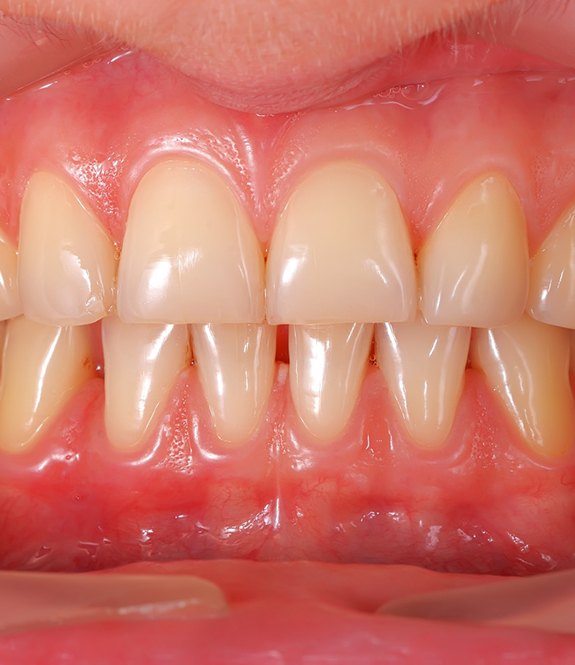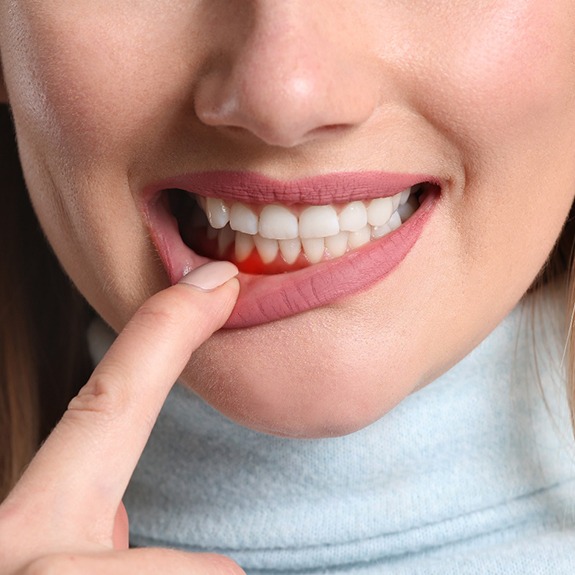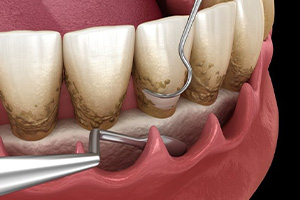Information?


While teeth get a lot of attention because they make up a person’s smile, they aren’t the only area that deserves a closer look. If your gums are not healthy, they can easily become infected, tender to the touch, and even start bleeding when brushing or chewing food! In more severe cases of untreated gum disease, teeth can even fall out. The good news is there are treatments available to treat gum disease specifically, especially more advanced cases. Call our dentists at Brush Dental today and we’ll perform an exam and get you started on a treatment plan!

The most common cause of gum disease by far is unremoved plaque and tartar. Harmful bacteria can easily develop on the surface of teeth and the gums if at-home oral hygiene is not practiced daily or dental exams and cleanings are not periodically completed. As dental plaque hardens, it turns into tartar, which can only be removed by a dentist. Over time, this material will infect the gums and cause them to turn red, sore, and inflamed.
One of the reasons why gum disease is so common is because the symptoms are not always so easy to discover on your own. Once they do become noticeable, the worst damage has already begun. If it continues to spread, it can damage the supporting bone tissue that holds teeth in place, resulting in tooth loss. Furthermore, bacteria can enter the bloodstream if the barrier between the mouth and body breaks down, causing other long-term health issues.

When caught early, gum disease can be treated by a detailed cleaning and improved at-home oral care. This stage, known as gingivitis, is still reversible and does not cause permanent damage. If your gums develop the more advanced stage of infection, known as periodontitis, you’ll need professional intervention to stop its spread. If you notice any of the following symptoms, call our office right away and we’ll get you started on periodontal therapy. These symptoms include:

While a detailed cleaning is often enough to reverse gingivitis, periodontitis requires a far more thorough process known as “deep cleaning.” This type of cleaning is performed via scaling and root planing. By performing this procedure, our team will be able to help remove any buildup of bacteria-filled plaque and tartar that’s accumulated below the gumline as well as improve the surface of your tooth roots to prevent this complication in the future.

As one of the most prominent oral health issues people face today, some of the common indications of periodontal disease involve swelling, bleeding, and inflammation along the gumline. If our team notices any of these symptoms or early stages of these signs, we’ll need to address them ahead of time to prevent them from worsening and creating more permanent damage to your mouth.

Scaling is a process where bacteria, plaque, and tartar are removed from areas above and beneath the gum line. Since bacteria have reached underneath the gums, a standard cleaning won’t be sufficient to stop the progression of your gum disease. Our team will first scrape away any plaque and tartar from beneath the gums using specialized dental tools, especially where bacteria deposits may have developed. This is only the first stage of the process.
Root planing is performed after scaling at a separate appointment and is designed to smooth out the root surfaces of teeth. Not only does this help the gums reattach to the tooth roots, but it also promotes more efficient healing while lowering the likelihood of bacteria accumulating on the surface again. Afterward, you should be able to enjoy a higher chance of avoiding the development of gum disease in the long run.

It’s quite normal for most patients to experience some discomfort or soreness after undergoing scaling and root planing. You might even expect your gums to be mildly swollen for several days. Fortunately, this should only be temporary, and you should notice your smile getting back to normal after a few weeks. To speed up your healing process, here are several steps to consider:
